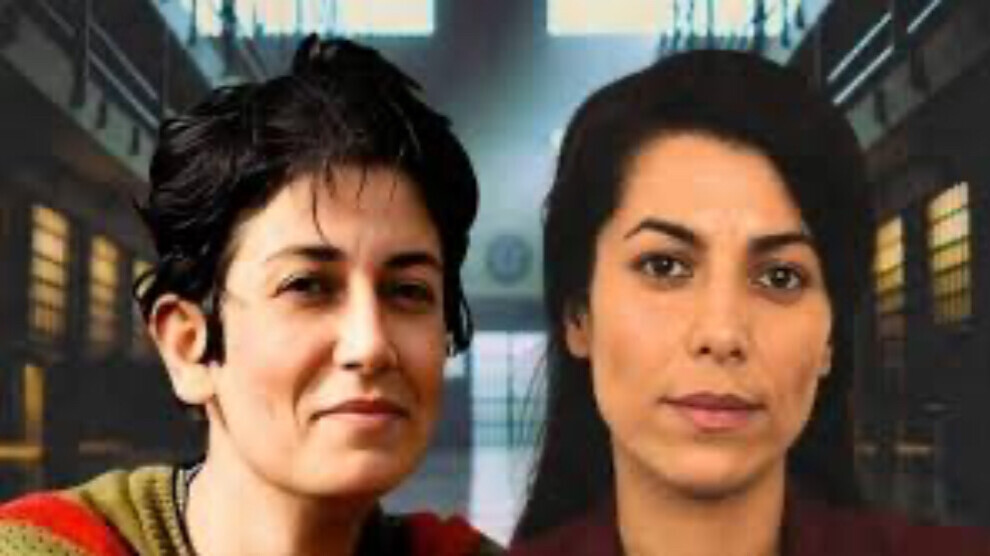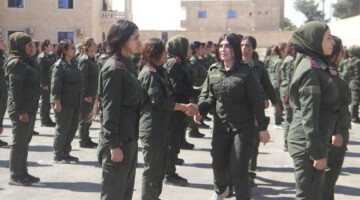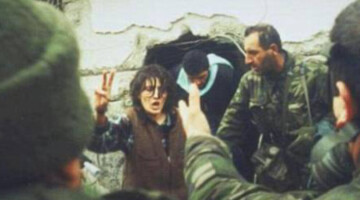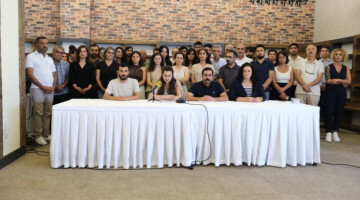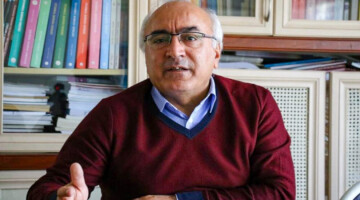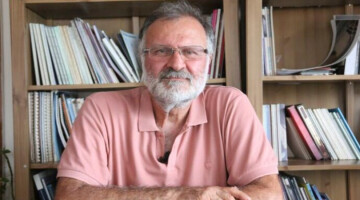A petition was launched in Argentina with the slogan “No to Death, Yes to Free Life” demanding the annulment of the death sentences against Kurdish female political prisoners Warisha Moradi and Pakshan Azizi in Iran.
Nearly 100 people and institutions signed the petition in a short period of time, including prominent figures such as Nobel Peace Prize winner Adolfo Pérez Esquivel, Madres de Plaza de Mayo - Línea Fundadora members Elia Espen and Taty Almeida, journalist Marta Dillon, human rights defender Carlos Lordkipanidze and Elsa Oshiro.
Organizations that support the campaign include Encuentro Memoria, Verdad y Justicia, Servicio de Paz y Justicia (Serpaj), Asamblea Permanente por los Derechos Humanos, Movimiento Ecuménico por los Derechos Humanos, Central de Trabajadores Argentinos (Autónoma) and Gremial de Abogados y Abogadas.
The appeal of the petition reads as follows:
No to execution, yes to a free life
"We, the undersigned, feminist activists, human rights defenders, committed to the defense of life, call for a halt to the execution order against Warisha Moradi and Pashkan Azizi, two Kurdish political prisoners in Iran, for the abolition of the death penalty, and for their immediate freedom.
As the Rojhilat Free Women's Society (KJAR) informs us, “Politically and socially active women in Iran are at particular risk of being arrested, tortured and imprisoned. The ‘Woman, Life, Freedom’ movement, which in recent years has been accompanied by widespread protests, symbolizes women's demands for equal rights and greater freedoms.”
Warisha Moradi and Pashkan Azizi were sentenced to death in 2024 by the Tehran Revolutionary Court in proceedings without legal safeguards. They are being held in Evin prison, having been tried without the representation of their lawyers in the interrogation phase, with statements obtained under brutal torture, without being able to see their families, and without adequate medical attention for the illnesses and injuries they have as a result of torture and prison conditions. They are accused of rebellion against the government, spreading propaganda against the system, belonging to opposition groups, all for being defenders of women's rights.
Warisha Moradi is a renowned writer and women's rights activist. She was arrested in August 2022 and sentenced to death in November 2024. Pakshan Azizi, a social worker, is a women's rights and children's rights activist, advocated for victims of domestic violence and worked on women's empowerment. She was arrested in August 2023 and sentenced to death.
We call on the Iranian government to prevent these executions and to stop applying the death penalty.”
In the meantime, Abya Yala Feminists, one of the organizers of the campaign, released a solidarity video on their social media accounts, stating the following:
“No to execution, no to the death penalty, yes to life! We demand the release of Warisha Moradi and Pakshan Azizi. We call on the Iranian government to take action to ensure that these detainees receive a fair trial and are freed. We call on feminists around the world to organize demonstrations in front of Iranian embassies and foreign ministries. Feminism has no borders. Jin, Jiyan, Azadi!”
Pakshan Azizi
Pakhshan Azizi was arrested in Tehran on 4 August 2023, by the Iranian Intelligence Service, and held in solitary confinement in Ward 209 of Evin Prison for five months. On 23 July 2024, Branch 26 of the Tehran Revolutionary Court sentenced her to death for “armed rebellion against the state (baghy)” and “membership of opposition groups”, along with a four-year prison term for alleged membership in the Kurdistan Free Life Party (PJAK). On 8 January 2025, Branch 39 of the Supreme Court upheld the death sentence.
According to a UN expert group, Azizi’s arrest and sentencing appear to be solely related to her legitimate work as a social worker, including her support for refugees in Iraq and Syria. The 40-year-old activist from Mahabad worked for humanitarian aid organizations based in the autonomous region of North and East Syria and the Kurdistan Region of Iraq until she was abducted in Tehran in August 2023 by agents of the Iranian Ministry of Intelligence. Her focus was on the social care of Yazidi women and children in camps who had been displaced from their homes as a result of the genocide committed by the terrorist organization “Islamic State” (IS) in August 2024 in Shengal. She also previously worked as a journalist.
Last week, Iran's Supreme Court rejected the reopening of the case of Kurdish female activist Pakshan Azizi. According to Azizi’s lawyer, Amir Raesian, the death sentence against the Kurdish journalist and activist is final and can be carried out at any time. The lawyer will appeal the verdict and the process of the trial, “because a big mistake is being made.”
Warisha Moradi
Warisha Moradi, also known as Ciwana Sine, was arrested on 1 August 2023 during a police check near her hometown of Sine (Sanandaj) and was initially the victim of a forced disappearance. The Kurdish woman is a member of the "Community of Free Women of Rojhilat" (KJAR), the umbrella organization of the Kurdish women's movement in East Kurdistan and Iran, and was committed to women's and feminist issues. Iran's regime judiciary sees the KJAR as a "separatist terrorist organization" because it is part of the Free Life in Kurdistan Party (PJAK). The PJAK resists the oppression and discrimination of the Kurdish people and advocates for women's liberation, autonomy and democracy in Iran.
After Moradi's abduction, her whereabouts were unclear for months. It was only through research by the French-based human rights organization Kurdistan Human Rights Network (KHRN) that it became known that the activist had been brutally tortured, mistreated and interrogated by the Iranian Secret Service in Sine for weeks after her arrest, until she was transferred to Tehran at the end of August last year. There she was held for months in the notorious high-security wing 209 of Evin prison - also subjected to torture and mistreatment, with the aim of breaking her or forcing her to confess. Moradi has been in the women's section of the prison since the beginning of January. She has been denied access to legal counsel for most of the time. The KHRN and other human rights groups described the trial against the activist as grossly unfair. It lasted only a few minutes; Moradi was not allowed to defend herself and her lawyers were not given access to the files. On hunger strike against the death penalty
In October, Warisha Moradi went on a hunger strike lasting almost three weeks to protest against the inhumane conditions in the Iranian regime's prisons and the death penalty. Only after numerous appeals from the KJAR as well as NGOs and civil rights activists, women's rights activists and other human rights defenders did she end the action. During the hunger strike, the 38-year-old's condition was at times life-threatening due to her already poor health and the torture she had suffered in custody. According to KJAR, she could have collapsed, fallen into a coma or died at any time. Her lawyers have announced that they will take action against the death sentence against Warisha Moradi and force an appeal.

